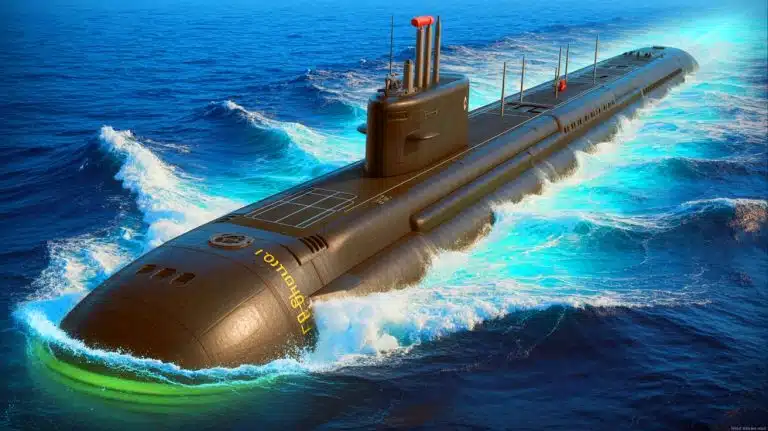| IN A NUTSHELL |
|
Thailand has taken a significant step in its defense strategy by purchasing a Chinese-built Type 039A submarine, marking a shift in its geopolitical stance. This decision, while a demonstration of strategic autonomy, signifies Thailand’s intent to balance its long-standing alliance with the United States and its growing relationship with China. As geopolitical tensions rise in the Asia-Pacific region, this deal is set to alter regional dynamics. The purchase is not just about acquiring military hardware; it is a statement of Thailand’s desire for strategic ambiguity and independence in its international relations.
Thailand’s Geopolitical Strategy
Thailand’s decision to buy a Chinese submarine is a notable development in its geopolitical strategy. Historically, Thailand has been a steadfast ally of the United States, serving as a crucial partner during the Vietnam War and maintaining its status as a major non-NATO ally. However, the acquisition of Chinese military technology marks a shift in Bangkok’s approach to international relations. Analysts suggest that this move is less about switching allegiances and more about asserting Thailand’s autonomy.
The purchase of the submarine is seen as a strategic move to maintain a balance of power in the region. By diversifying its defense partnerships, Thailand is signaling to the United States that it seeks to operate independently of external pressures. This decision comes in the wake of strained relations with Washington, particularly after the 2014 coup in Thailand, which led to a freeze in some U.S. military aid. The submarine deal underscores Thailand’s commitment to a policy of “strategic ambiguity,” where it can engage with both superpowers without fully aligning with either.
China's Growing Influence
China's role as a major arms exporter is cemented by its deal with Thailand. As the fourth-largest arms supplier globally, China is expanding its influence by selling advanced military technology to countries traditionally aligned with the United States. The sale of the Type 039A submarine to Thailand is a testament to China's growing prowess in defense manufacturing and its ability to forge new alliances.
The deal includes technology transfer and training provisions, extending the construction timeline by approximately 40 months. This aspect of the agreement highlights China's strategic interest in not only selling military equipment but also in building long-term defense relationships. For China, this deal is a significant diplomatic victory, enhancing its influence in the Asia-Pacific region and showcasing its capabilities as a reliable defense partner.
Military and Political Implications
While the purchase of a submarine may not drastically alter Thailand's military capabilities, it carries substantial political implications. The submarine, equipped with a Stirling-type air-independent propulsion system, offers at-sea endurance of up to 65 days, making it a formidable addition to Thailand's naval fleet. However, experts agree that the acquisition is more about political signaling than military necessity.
Thailand's emphasis on maintaining strategic autonomy is evident in its defense planning. Despite the purchase, maritime forces are not a high priority for Thailand, indicating that the deal is more about geopolitical signaling. This nuanced approach allows Thailand to strengthen its ties with China while reassuring the United States of its continued partnership. The U.S. response has been measured, acknowledging Thailand as a close partner but closely monitoring the implications of this new defense relationship.
Navigating Complex Alliances
The decision to purchase a Chinese submarine reflects Thailand's navigation of complex international alliances. As a nation with deep historical ties to the United States, Thailand's engagement with China is a delicate balancing act. This move is not about abandoning old alliances but about hedging bets in an uncertain world. By maintaining relationships with both superpowers, Thailand aims to enhance its geopolitical standing and ensure its security interests are protected.
The submarine deal is a manifestation of Thailand's desire for strategic independence. It highlights the country's effort to assert its sovereignty and resist external pressures. As Thailand continues to engage with both the United States and China, it sets a precedent for other nations in the region seeking similar strategic autonomy. The deal raises questions about the future of U.S.-Thailand relations and the evolving dynamics of power in the Asia-Pacific region.
In the evolving landscape of international relations, Thailand's strategic purchase signals its intent to maintain autonomy while navigating complex alliances. As the Asia-Pacific region becomes a focal point of global power dynamics, how will Thailand's balancing act between China and the United States influence regional stability and its role on the world stage?
Did you like it? 4.5/5 (26)






Wow, this is a bold move by Thailand! 😮 What does this mean for their relationship with the U.S.?
Wow, this is big news! How will this impact Thailand’s relationship with the US? 🤔